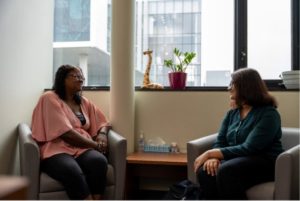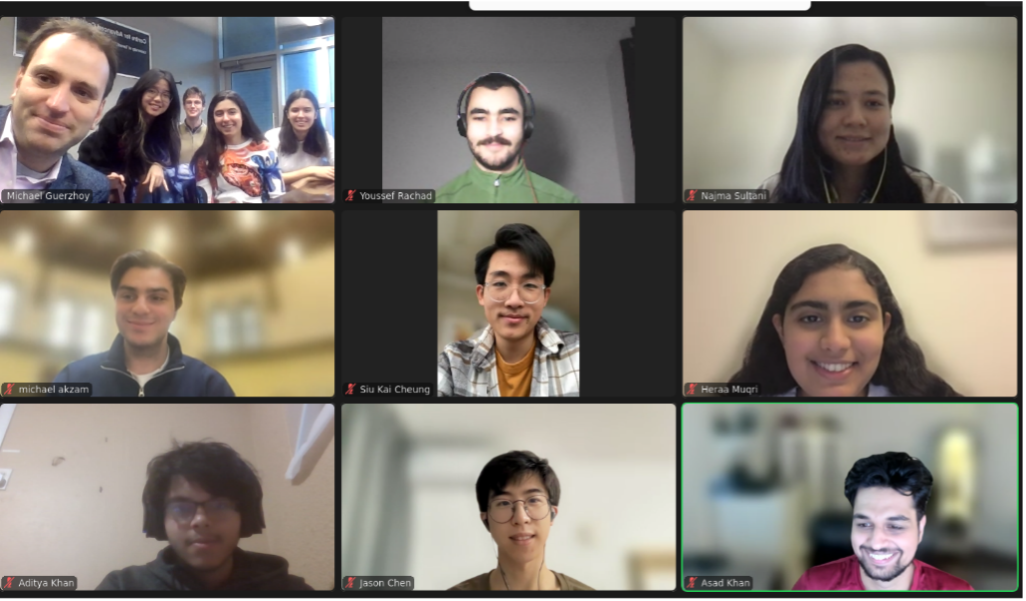
Professor Michael Guerzhoy (MIE, EngSci) and a team of undergraduate U of T Engineering students are researching how artificial intelligence and machine-learning can aid clinicians in treating mental health-related speech disfluency.
Currently, when treating mental health related symptoms, clinicians often adjust medications based on expensive and sparse observations, says Guerzhoy, making it difficult to identify if a specific drug is working optimally or not. Patients respond to each medication differently, and the effects can be subtle or only visible over a long period of time. The effects of these therapies can also be difficult to differentiate from other factors affecting patient behaviours.
Complex symptoms like speech disfluency, which is when individuals experience chronic and repeated problems with continuous speech, can be particularly challenging to treat.
“Studies show that there is a correlation between mental health conditions like anxiety and depression and speech disfluency,” says Guerzhoy.
“I believe that patient care can be substantially improved in situations where low-cost frequent observations are possible through making use of reinforcement learning systems to help prescribe and adjust medications.”
These systems would work as an advisor to clinicians, helping them predict medication outcomes based on machine-learning algorithms.
The team’s research was published in a recent paper, presented at the Machine Learning for Cognitive and Mental Health Workshop at the Conference of the Association for the Advancement of Artificial Intelligence (ML4CMH @ AAAI).
The first component features a module that detects and evaluates speech disfluency on a large data set. The second is a reinforcement learning algorithm that automatically sources and recommends medication combinations. To support the two modules, the team built a plausible patient-simulation system.
Guerzhoy compared this system to the idea of a computer playing chess.
“We all know that computers are excellent at playing chess. Our hope is that these computer-based reinforcement learning models will help clinicians become sort of chess grand masters in their field,” he explains.
By exploring the potential of automating and fine-tuning medication regimes for patients, the team hopes this will provide a pathway to improving the way we treat mental health. Harnessing AI to pick up on small changes in behaviour in more frequent increments would give clinicians another tool in their toolkit, says Guerzhoy, especially since the high cost of sessions is a significant factor in a patient’s treatment.

Guerzhoy emphasized the crucial role played by undergraduate engineering students in advancing the project.
He recognized the dedication of the team, which included Michael Akzam (Year 3 ECE), Micol Altomare (Year 3 EngSci), Lauren Altomare (Year 2 EngSci), Nimit Amikumar Bhanshali (Computer Science), Kaison Cheung (Year 4 CivE), Carrie Chen (Cornell University), Jiacheng Chen (Year 3 EngSci), Andreas Constas (Year 3 EngSci), Pavlos Constas (Year 1 EngSci), Vhea He (Year 2 EngSci), Aditya Khan (Data Science), Asad Khan (Computer Science), Heraa Murqi (Year 2 EngSci), Matthew Honorio Oliveira (Year 3 EngSci), Youssef Rachad (Year 3 EngSci), Vikram Rawal (Year 3 EngSci), and Najma Sultani (Year 2 EngSci).
“Having such a large team of undergraduate students involved that are passionate about the research was essential,” he says.
– This story was originally published on the University of Toronto’s Faculty of Applied Science and Engineering News Site on February 15, 2024 by Selah Katona.